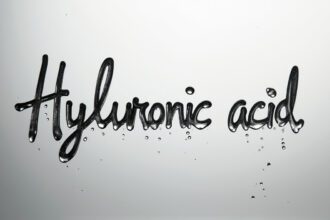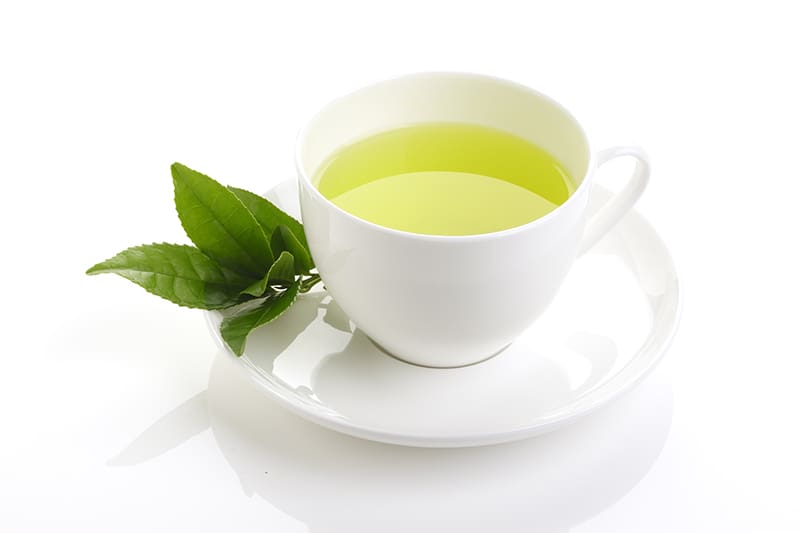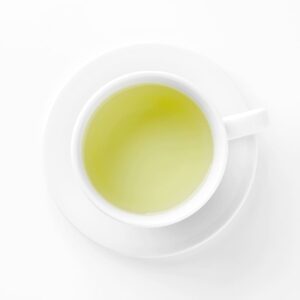Tea, particularly green tea, offers many health benefits, such as protecting against several types of cancer and cardiovascular disease and improved immune system response. Tea consumption has also been shown to have potent metabolic effects contributing to weight loss. The active ingredients in such teas are compounds collectively known as polyphenols. Of the natural polyphenols found in tea, the most potent is epigallocatechin gallate (ECGC), which is particularly potent at stimulating thermogenesis.
Thermogenesis is the process of heat production that can facilitate the fat burning process. Several systemic reviews have been published in the past few years concluded that catechin or an EGCG-caffeine mixture contained in green tea can contribute to weight loss and weight maintenance. One study reported that participants who received green tea catechins in combination with caffeine had a decreased body weight and waist circumference, compared with the control groups containing similar amounts of caffeine.
Green Tea’s Effects of Fat Metabolism
Green tea extract has been shown to increase fat oxidation, much like high-intensity exercise. Green tea catechins have been found to inhibit the enzyme Catechol-O-methyltransferase (COMT), the enzyme that degrades norepinephrine. This means green tea catechins inhibit the fat burning enzyme from being broken down in the synapse prolong the actions of norepinephrine enhancing fat burning. Previous research has demonstrated that the combination of green tea and high-intensity interval training increase fat oxidation. In a previous study, researchers investigated the combined effect of short-term green tea extract and a single session of intermittent sprinting exercise upon post-exercise fat oxidation. Fourteen women consumed either green tea extract or placebo capsules the day before and one tablet 90 minutes before a 20-minute of high intermittent sprinting cycling protocol.
At the end of the study, there was a significant increase in fat oxidation post-exercise compared to at rest in the placebo condition. After green tea extract ingestion, however, at rest and post-exercise, fat oxidation was significantly greater than that after placebo. Compared to placebo, plasma catecholamines (i.e. fat burning hormones) increased significantly after green tea extract consumption and 20 minutes after intermittent sprinting exercise. Acute green tea extract ingestion significantly increased fat oxidation under resting and post-exercise conditions when compared to placebo.
Green Tea and Caffeine: Synergistic Effects on Fat Loss
Many people think that the caffeine content in green tea is what enhances fat loss, but green tea and caffeine work on separate metabolic pathways. One study in humans investigated whether a green tea extract, by virtue of its high content of caffeine and catechin polyphenols, could increase 24-h energy expenditure and fat oxidation in humans. On three separate occasions, subjects were randomly assigned among three treatments:
The subjects ingested the supplements at breakfast, lunch, and dinner. Compared to placebo, treatment with the green tea extract resulted in a significant increase in 24-hour energy expenditure and a substantial increase in fat oxidation. Twenty-four–hour urinary norepinephrine excretion (i.e. fat burning hormone) was higher during treatment with the green tea extract than with the placebo (40% increase). Treatment with caffeine in amounts equivalent to those found in the green tea extract had no effect on energy expenditure and fat oxidation nor on catecholamines. The researchers concluded that green tea has thermogenic properties and promotes fat oxidation beyond that explained by its caffeine content per se. The researchers also proposed the mechanisms for caffeine and green tea work thru separate mechanisms to enhance fat burning:
-green tea catechins, by inhibiting COMT (enhancing the actions of norepinephrine), and
-caffeine, by inhibiting phosphodiesterases (increasing the life of cAMP in the cell). Elevated cAMP levels are associated with increased rates of fat loss, and can improve the effects of other fat burning compounds.
Theaflavins: A New Compound that Enhances Fat Loss
Theaflavins are polyphenols found in black tea, whose physiological activities are not well understood. Most of the research on polyphenols have been conducted with green tea polyphenols. Researchers examined the impact of a single oral administration of theaflavins on energy metabolism by monitoring the initial metabolic changes in skeletal muscle and brown adipose tissue in mice. When mice were administered theaflavins, Oxygen consumption and energy expenditure were increased significantly in mice treated with theaflavins compared with the group administered placebo. These results indicate that theaflavins greatly enhances energy expenditure, as evidenced by an increase in expression of metabolic genes. A previous human study reported that black tea could enhance metabolic rate. A double-blind, placebo-controlled, crossover study was conducted on 16 healthy, weight-stable, subjects. Subjects consumed an oral administration of a supplement containing principally 600 mg black tea extract (60 percent polyphenols, 20 percent caffeine) and 442 mg guarana extract (36 percent caffeine) or matching placebo. The herbal supplement increased metabolic rate, similarly to those studies using green tea, but the researchers used black tea.
If you are looking to enhance fat loss, look for a supplement that contains a blend of several different polyphenols with green tea, black tea, and caffeine.
-green tea extract (50 mg caffeine and 90 mg
epigallocatechin gallate),
-caffeine (50 mg), and
-placebo
Green Tea’s Effects of Fat Metabolism
Green tea extract has been shown to increase fat oxidation, much like high-intensity exercise. Green tea catechins have been found to inhibit the enzyme Catechol-O-methyltransferase (COMT), the enzyme that degrades norepinephrine. This means green tea catechins inhibit the fat burning enzyme from being broken down in the synapse prolong the actions of norepinephrine enhancing fat burning. Previous research has demonstrated that the combination of green tea and high-intensity interval training increase fat oxidation. In a previous study, researchers investigated the combined effect of short-term green tea extract and a single session of intermittent sprinting exercise upon post-exercise fat oxidation. Fourteen women consumed either green tea extract or placebo capsules the day before and one tablet 90 minutes before a 20-minute of high intermittent sprinting cycling protocol.
At the end of the study, there was a significant increase in fat oxidation post-exercise compared to at rest in the placebo condition. After green tea extract ingestion, however, at rest and post-exercise, fat oxidation was significantly greater than that after placebo. Compared to placebo, plasma catecholamines (i.e. fat burning hormones) increased significantly after green tea extract consumption and 20 minutes after intermittent sprinting exercise. Acute green tea extract ingestion significantly increased fat oxidation under resting and post-exercise conditions when compared to placebo.
Green Tea and Caffeine: Synergistic Effects on Fat Loss
Many people think that the caffeine content in green tea is what enhances fat loss, but green tea and caffeine work on separate metabolic pathways. One study in humans investigated whether a green tea extract, by virtue of its high content of caffeine and catechin polyphenols, could increase 24-h energy expenditure and fat oxidation in humans. On three separate occasions, subjects were randomly assigned among three treatments:
The subjects ingested the supplements at breakfast, lunch, and dinner. Compared to placebo, treatment with the green tea extract resulted in a significant increase in 24-hour energy expenditure and a substantial increase in fat oxidation. Twenty-four–hour urinary norepinephrine excretion (i.e. fat burning hormone) was higher during treatment with the green tea extract than with the placebo (40% increase). Treatment with caffeine in amounts equivalent to those found in the green tea extract had no effect on energy expenditure and fat oxidation nor on catecholamines. The researchers concluded that green tea has thermogenic properties and promotes fat oxidation beyond that explained by its caffeine content per se. The researchers also proposed the mechanisms for caffeine and green tea work thru separate mechanisms to enhance fat burning:
-green tea catechins, by inhibiting COMT (enhancing the actions of norepinephrine), and
-caffeine, by inhibiting phosphodiesterases (increasing the life of cAMP in the cell). Elevated cAMP levels are associated with increased rates of fat loss, and can improve the effects of other fat burning compounds.
Theaflavins: A New Compound that Enhances Fat Loss
Theaflavins are polyphenols found in black tea, whose physiological activities are not well understood. Most of the research on polyphenols have been conducted with green tea polyphenols. Researchers examined the impact of a single oral administration of theaflavins on energy metabolism by monitoring the initial metabolic changes in skeletal muscle and brown adipose tissue in mice. When mice were administered theaflavins, Oxygen consumption and energy expenditure were increased significantly in mice treated with theaflavins compared with the group administered placebo. These results indicate that theaflavins greatly enhances energy expenditure, as evidenced by an increase in expression of metabolic genes. A previous human study reported that black tea could enhance metabolic rate. A double-blind, placebo-controlled, crossover study was conducted on 16 healthy, weight-stable, subjects. Subjects consumed an oral administration of a supplement containing principally 600 mg black tea extract (60 percent polyphenols, 20 percent caffeine) and 442 mg guarana extract (36 percent caffeine) or matching placebo. The herbal supplement increased metabolic rate, similarly to those studies using green tea, but the researchers used black tea.
If you are looking to enhance fat loss, look for a supplement that contains a blend of several different polyphenols with green tea, black tea, and caffeine.








